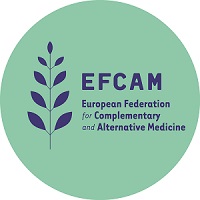|
The European Parliament gave the go-ahead for the EU’s research and development funding for the period 2007-2013, when MEPs adopted 10 reports relating to the 7th Framework Research Programme (FP7). This programme, the EU’s main instrument for funding scientific research, will have a budget of more than €54 billion over its seven-year life. Through a European Parliament amendment introduced in the First Reading the new programme includes a specific mention of research into complementary and alternative medicine as a potential recipient of EU R&D funding.
As Parliament and Council have settled their main differences through a compromise package, FP7 is to enter into force on 1 January 2007. What is FP7? Successive framework programmes (FPs) have operated since 1984, each covering a five year period. The current programme – FP6 – expires at the end of 2006. However, FP7 will run for seven years – from 1 January 2007 to 2013 – so as to coincide with the EU’s multiannual budget framework (the Financial Perspective). Simpler instruments and procedures for funding and participation are a feature of FP7, which will promote collaborative research based on broad research areas, with much continuity from FP6 plus two new topics, space and security. Only projects involving several partners from different countries will be financed. The programme’s funds are not general subsidies to research organisations or companies: they may only be used for specific work or research projects. The 7th Framework Programme is organised around four Specific Programmes: Co-operation: a programme to support cooperation between universities, industry, research centres and public authorities, and between the EU and third countries. It is in this programme that health related research and the specific line on CAM is included. Ideas: a programme to create an autonomous European Research Council to support investigator-driven “frontier research”. Separately, the Euratom Framework Programme (which also has a Specific Programme) covers two areas: fusion energy research and nuclear fission and radiation protection. Parliament’s role Many of Parliament’s first-reading amendments were accepted by Council, including those aimed at encouraging participation by small and medium-sized firms and boosting the position of young researchers and women in science, and those dealing with stem cell research. Parliament’s priorities European Research Council Ethical questions Parliament and Council agreed that all the research activities carried out under the Seventh Framework Programme must be carried out in compliance with fundamental ethical principles. Thus, no Community funding will be allowed for research aimed at human cloning for reproductive purposes or research intended to modify the genetic heritage of human beings. Nor will funds be available for research intended to create human embryos solely for the purposes of research or stem cell procurement, including by means of somatic cell nuclear transfer. Research on the use of human stem cells, both adult and embryonic, may be financed, depending both on the nature of the scientific proposal and the legal framework of the Member State(s) involved. As regards the use of human embryonic stem cells, institutions, organisations and researchers must be strictly licensed and controlled in accordance with the legal framework of the Member State(s) involved. Budget
|
|||||||||||||||||||||||||||||||||||||||||||||||||||||||||||||||||||||||||||||||
